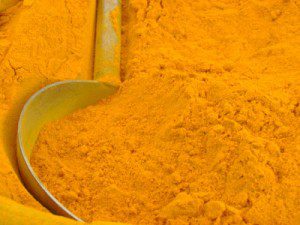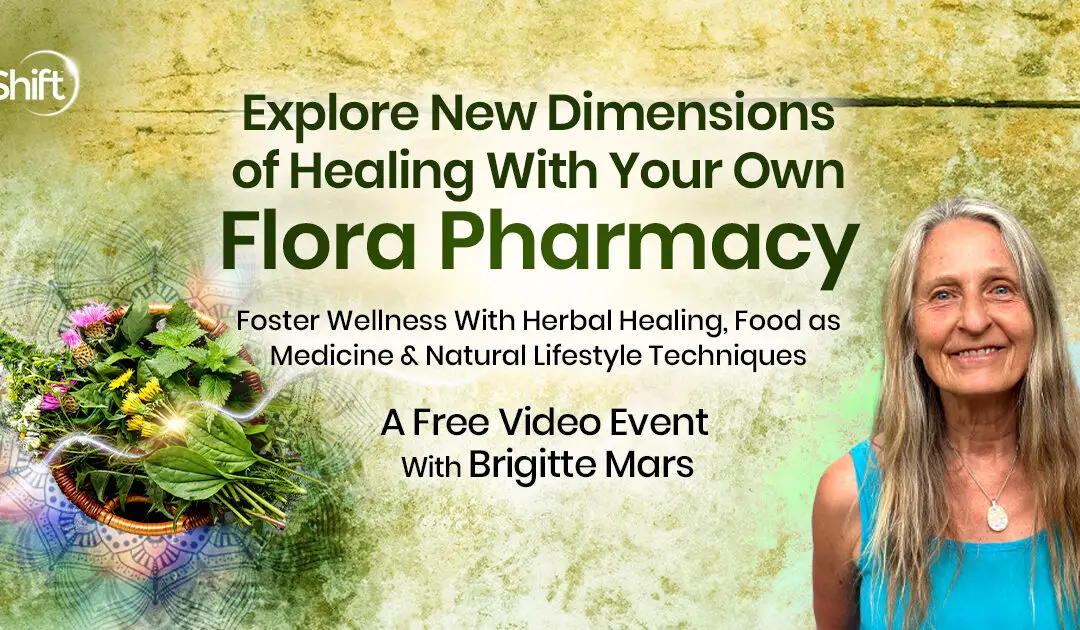By Sayer Ji
Contributing Writer for Wake Up World
Turmeric is one the most thoroughly researched plants in existence today. Its medicinal properties and components (primarily curcumin) have been the subject of over 5600 peer-reviewed and published biomedical studies. In fact, our five-year long research project on this sacred plant has revealed over 600 potential preventive and therapeutic applications, as well as 175 distinct beneficial physiological effects. This entire database of 1,585 ncbi-hyperlinked turmeric abstracts can be downloaded as a PDF at our Downloadable Turmeric Document page, and acquired either as a retail item or with 200 GMI-tokens, for those of you who are already are members and receive them automatically each month.
Given the sheer density of research performed on this remarkable spice, it is no wonder that a growing number of studies have concluded that it compares favorably to a variety of conventional medications, including:
- Lipitor/Atorvastatin (cholesterol medication): A 2008 study published in the journal Drugs in R & D found that a standardized preparation of curcuminoids from Turmeric compared favorably to the drug atorvastatin (trade name Lipitor) on endothelial dysfunction, the underlying pathology of the blood vessels that drives atherosclerosis, in association with reductions in inflammation and oxidative stress in type 2 diabetic patients. [i] [For addition curcumin and ‘high cholesterol’ research – 8 abstracts]
- Corticosteroids (steroid medications): A 1999 study published in the journal Phytotherapy Research found that the primary polyphenol in turmeric, the saffron colored pigment known as curcumin, compared favorably to steroids in the management of chronic anterior uveitis, an inflammatory eye disease.[ii] A 2008 study published in Critical Care Medicine found that curcumin compared favorably to the corticosteroid drug dexamethasone in the animal model as an alternative therapy for protecting lung transplantation-associated injury by down-regulating inflammatory genes.[iii] An earlier 2003 study published in Cancer Letters found the same drug also compared favorably to dexamethasone in a lung ischaemia-repurfusion injury model.[iv] [for additional curcumin and inflammation research – 52 abstracts]
- Prozac/Fluoxetine & Imipramine (antidepressants): A 2011 study published in the journalActa Poloniae Pharmaceutica found that curcumin compared favorably to both drugs in reducing depressive behavior in an animal model.[v] [for additional curcumin and depression research – 5 abstracts]
- Aspirin (blood thinner): A 1986 in vitro and ex vivo study published in the journalArzneimittelforschung found that curcumin has anti-platelet and prostacyclin modulating effects compared to aspirin, indicating it may have value in patients prone to vascular thrombosis and requiring anti-arthritis therapy.[vi] [for additional curcumin and anti-platelet research]
- Anti-inflammatory Drugs: A 2004 study published in the journal Oncogene found that curcumin (as well as resveratrol) were effective alternatives to the drugs aspirin, ibuprofen, sulindac, phenylbutazone, naproxen, indomethacin, diclofenac, dexamethasone, celecoxib, and tamoxifen in exerting anti-inflammatory and anti-proliferative activity against tumor cells.[vii] [for additional curcumin and anti-proliferative research – 15 abstracts]
- Oxaliplatin (chemotherapy drug): A 2007 study published in the International Journal of Cancer found that curcumin compares favorably with oxaliplatin as an antiproliferative agenet in colorectal cell lines.[viii] [for additional curcumin and colorectal cancer research – 52 abstracts]
- Metformin (diabetes drug): A 2009 study published in the journal Biochemitry and Biophysical Research Community explored how curcumin might be valuable in treating diabetes, finding that it activates AMPK (which increases glucose uptake) and suppresses gluconeogenic gene expression (which suppresses glucose production in the liver) in hepatoma cells. Interestingly, they found curcumin to be 500 times to 100,000 times (in the form known as tetrahydrocurcuminoids(THC)) more potent than metformin in activating AMPK and its downstream target acetyl-CoA carboxylase (ACC). [ix]
Another way in which turmeric and its components reveal their remarkable therapeutic properties is in research on drug resistant- and multi-drug resistant cancers. We have two sections on our site dedicated to researching natural and integrative therapies on these topics, and while there are dozens of substances with demonstrable efficacy against these chemotherapy- and radiation-resistant cancers, curcumin tops both lists:
We have found no less than 54 studies indicating that curcumin can induce cell death or sensitize drug-resistant cancer cell lines to conventional treatment.[x]
We have identified 27 studies on curcumin’s ability to either induce cell death or sensitize multi-drug resistant cancer cell lines to conventional treatment.[xi]
Considering how strong a track record turmeric (curcumin) has, having been used as both food and medicine in a wide range of cultures, for thousands of years, a strong argument can be made for using curcumin as a drug alternative or adjuvant in cancer treatment.
Or, better yet, use certified organic (non-irradiated) turmeric in lower culinary doses on a daily basis so that heroic doses won’t be necessary later in life after a serious disease sets in. Nourishing yourself, rather than self-medicating with ‘nutraceuticals,’ should be the goal of a healthy diet. [learn more at Sayer Ji’s new collaborative project EATomology]
- [i] P Usharani, A A Mateen, M U R Naidu, Y S N Raju, Naval Chandra. Effect of NCB-02, atorvastatin and placebo on endothelial function, oxidative stress and inflammatory markers in patients with type 2 diabetes mellitus: a randomized, parallel-group, placebo-controlled, 8-week study. Drugs R D. 2008;9(4):243-50. PMID: 18588355
- [ii] B Lal, A K Kapoor, O P Asthana, P K Agrawal, R Prasad, P Kumar, R C Srimal. Efficacy of curcumin in the management of chronic anterior uveitis. Phytother Res. 1999 Jun;13(4):318-22. PMID: 10404539
- [iii] Jiayuan Sun, Weigang Guo, Yong Ben, Jinjun Jiang, Changjun Tan, Zude Xu, Xiangdong Wang, Chunxue Bai. Preventive effects of curcumin and dexamethasone on lung transplantation-associated lung injury in rats. Crit Care Med. 2008 Apr;36(4):1205-13. PMID: 18379247
- [iv] J Sun, D Yang, S Li, Z Xu, X Wang, C Bai. Effects of curcumin or dexamethasone on lung ischaemia-reperfusion injury in rats. Cancer Lett. 2003 Mar 31;192(2):145-9. PMID: 18799504
- [v] Jayesh Sanmukhani, Ashish Anovadiya, Chandrabhanu B Tripathi. Evaluation of antidepressant like activity of curcumin and its combination with fluoxetine and imipramine: an acute and chronic study. Acta Pol Pharm. 2011 Sep-Oct;68(5):769-75. PMID:21928724
- [vi] R Srivastava, V Puri, R C Srimal, B N Dhawan. Effect of curcumin on platelet aggregation and vascular prostacyclin synthesis. Arzneimittelforschung. 1986 Apr;36(4):715-7. PMID:3521617
- [vii] Yasunari Takada, Anjana Bhardwaj, Pravin Potdar, Bharat B Aggarwal. Nonsteroidal anti-inflammatory agents differ in their ability to suppress NF-kappaB activation, inhibition of expression of cyclooxygenase-2 and cyclin D1, and abrogation of tumor cell proliferation.Oncogene. 2004 Dec 9;23(57):9247-58. PMID: 15489888
- [viii] Lynne M Howells, Anita Mitra, Margaret M Manson. Comparison of oxaliplatin- and curcumin-mediated antiproliferative effects in colorectal cell lines. Int J Cancer. 2007 Jul 1;121(1):175-83. PMID: 17330230
- [ix] Teayoun Kim, Jessica Davis, Albert J Zhang, Xiaoming He, Suresh T Mathews. Curcumin activates AMPK and suppresses gluconeogenic gene expression in hepatoma cells.Biochem Biophys Res Commun. 2009 Oct 16;388(2):377-82. Epub 2009 Aug 8. PMID: 19665995
- [x] GreenMedInfo.com, Curcumin Kills Drug Resistant Cancers, 54 Abstracts
- [xi] GreenMedInfo.com, Curcumin Kills Multi-Drug Resistant Cancers: 27 Abstracts.
Further articles by Sayer Ji
- 7 Ways to Prevent and Even Reverse Heart Disease with Nutrition
- MCT Fats Found In Coconut Oil Boost Brain Function In Only One Dose
- The Evidence-Based Healing Properties of 13 Common Fruits
- Is This Fruit Extract 10,000 Times Better Than Chemotherapy?
- How GMO Farming and Food Is Making Our Gut Flora UNFRIENDLY
- Dental Composites for Kids: Even Worse Than Mercury Amalgam?
- 13 Evidence-Based Medicinal Properties of Coconut Oil
- Five Amazing Healing Honey Facts
- Let Food Be Your Cosmetic: Coconut Oil Outperforms Dangerous Petroleum Body Care Products
About the author:
 Sayer Ji is the founder and director of www.GreenMedInfo.com and an advisory board member at the National Health Federation, an international nonprofit, consumer-education, health-freedom organization. He co-authored the book Cancer Killers: The Cause Is The Cure, and is working on another one with Tania Melkonian titled EATomology: An Edible Philosophy of Food.
Sayer Ji is the founder and director of www.GreenMedInfo.com and an advisory board member at the National Health Federation, an international nonprofit, consumer-education, health-freedom organization. He co-authored the book Cancer Killers: The Cause Is The Cure, and is working on another one with Tania Melkonian titled EATomology: An Edible Philosophy of Food.
Check out Sayer Ji’s new collaborative project EATomology.
You may walk past common weeds every day without realizing their incredible healing power. Plants like nettles, dandelions, and purslane have been used for centuries in natural remedies to support health and well-being. Often dismissed as nuisances, these weeds are rich in nutrients and healing properties that can boost your energy, detoxify your body, and provide essential vitamins and minerals.
In Explore New Dimensions of Healing With Your Own Flora Pharmacy, herbal expert Brigitte Mars will teach you how to harness the healing power of these common plants. With over 50 years of experience, she blends ancient wisdom with modern insights, showing how natural remedies can be easily integrated into your daily life. Brigitte will reveal the hidden treasures growing right in your backyard, from the rich vitamin content of nettles to the detoxifying benefits of dandelions.
By attending this free online event, you’ll discover natural remedies for yourself and gain practical tips for improving your overall wellness. Learn how to embrace nature’s forgotten pharmacy and take control of your health through simple, accessible techniques that have stood the test of time.
If you’ve found value in our articles, we invite you to support the release of our brand-new book, “Gratitude Practices for Kids: A Practical Guide for Adults to Instill a Spirit of Appreciation and Positivity in the Next Generation.“
“Gratitude Practices for Kids” brings together over 25 innovative and accessible practices designed to enhance gratitude in everyday life. This comprehensive guide is backed by 17 scientific studies, ensuring each concept is grounded in research, underscoring our commitment to nurturing growth, emotional intelligence, and positive interactions between adults and children.
We encourage you to opt for the paperback version to celebrate this new release. Dive into its fresh pages away from digital distractions, allowing you to immerse yourself in the transformative practices it offers.
Over recent years, Wake Up World has faced significant online censorship, which has impacted our financial ability to operate. Moving into book publishing represents a strategic step to secure the ongoing funds needed to continue our mission. By purchasing Gratitude for Kids, you help us keep our content free and accessible to everyone, avoiding needing a paywall. With over 8,500 articles published in the last 13 years, we remain dedicated to keeping our valuable content open to all.










